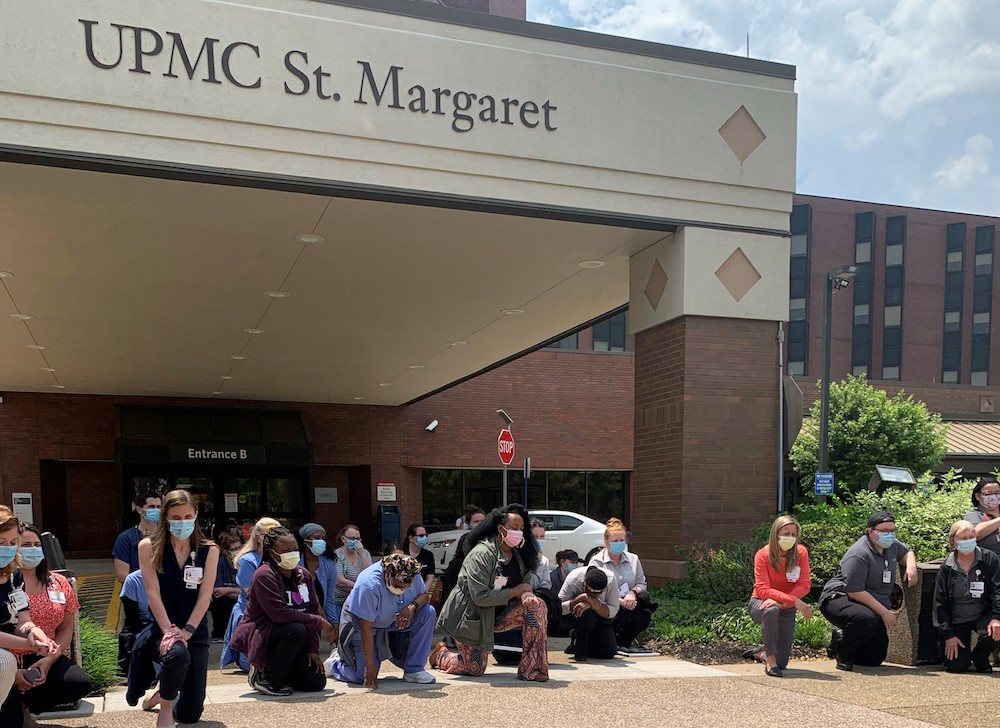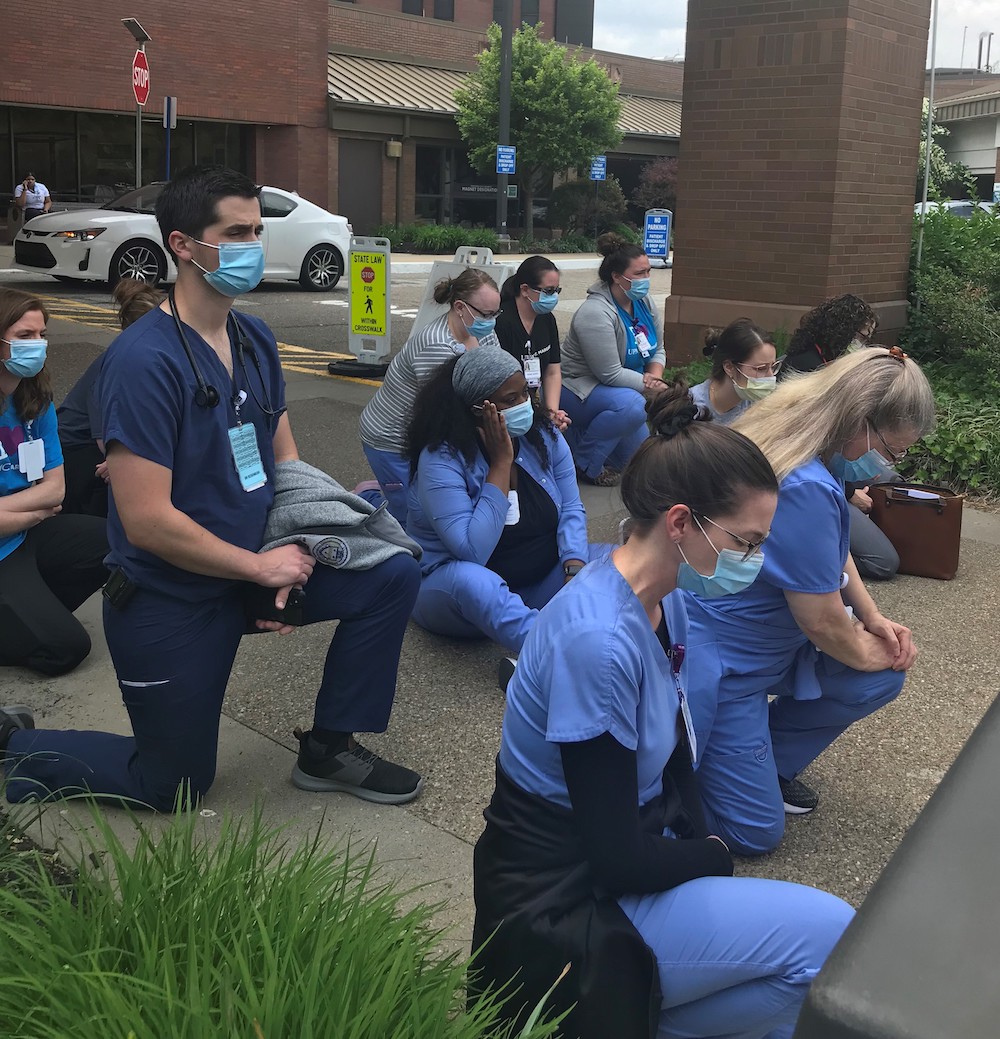We have confronted unprecedented challenges in recent years. The COVID-19 pandemic tragically claimed so many lives, and laid bare existing fractures within our communities caused by inequities due to socioeconomic status, race and access to health care. These extraordinary times compel us to use our privilege as healthcare professionals to turn words into action, and to help create a more just and equitable society.
At the UPMC St. Margaret Family Medicine Residency Program, we respond to the needs of our community. Our residents and faculty ran a COVID inpatient unit during the height of the devastating winter surge of 2021 that saved lives, supported families during the most challenging times, and helped our hospital safely provide comprehensive, evidence-based care. Because our residents cover the hospital inpatient units, ICU, and ER, their skills in caring for critically ill patients suffering from COVID and its complications made a tremendous difference during the pandemic.
Providing care for medically underserved communities in our 3 Family Health Centers, we confront the upstream social determinants of health that worsen disparities, and we innovate in both clinical and educational spaces to provide holistic care for our patients and families including:
- Integrated behavioral health
- Early childhood literacy programs
- School health programs
- Immunization outreach programs
- LGBTQ cultural competency training
- Medication-Assisted Treatment (MAT)
- Onsite hepatitis C treatment
- Virtual telemedicine outreach program to vulnerable patients and families



As a residency program, we create a clinical and learning environment of inclusion and support, training our residents to become effective change leaders in our communities through self-reflection, education, advocacy, and action. Our residents worked with faculty to create a longitudinal Race in Medicine educational curriculum, incorporating assessments of health care disparities during daily lectures and rounds. Our impactful Community Medicine curriculum provides valuable opportunities to work with organizations including Operation Safety Net (working with unhoused individuals), Prevention Point Pittsburgh (needle exchange and OUD outreach), school health education programs, early childhood literacy, and Seeds of Faith (community center), to name a few.
We are committed to “bend the moral arc of the universe toward justice” as healthcare providers, and know that our responsibility to our patients, families and communities is great. We are ready to meet these challenges as family physicians and are excited to have you join us on this meaningful journey.
